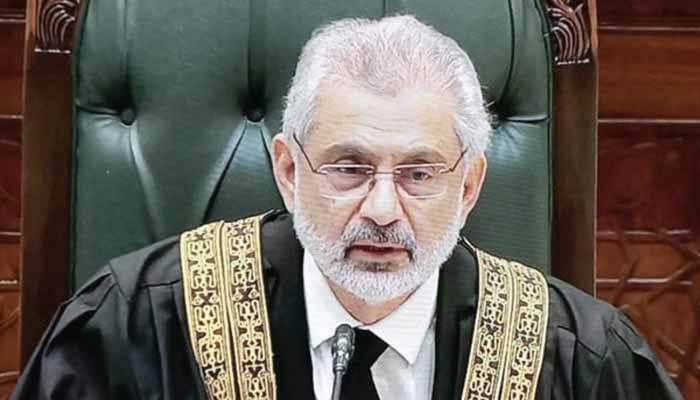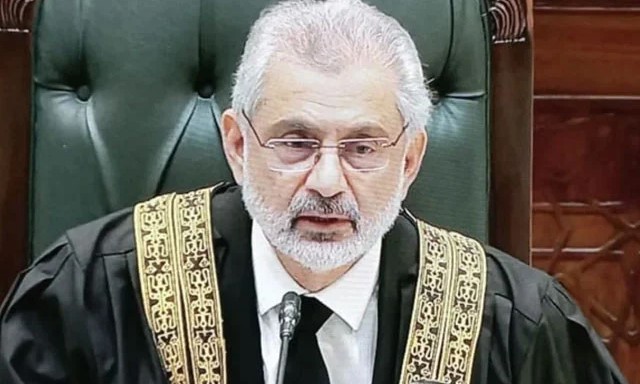LEGAL

Chief Justice of Pakistan (CJP) Qazi Faiz Isa, along with Justice Jamal Khan Mandukhel, has issued a detailed minority judgment in the case concerning reserved seats in the Supreme Court. The judgment presents a dissenting opinion against the majority decision and urges a reconsideration of the key aspects of the case.
Chief Justice Isa, in a 14-page dissenting note, emphasized his responsibility to highlight constitutional violations and shortcomings within the majority judgment. He expressed hope that the majority judges would rectify their mistakes by carefully reviewing their own decision.
Constitutional Violations and System Integrity
In the minority decision, CJP Isa stated that it is essential to ensure that Pakistan’s system operates under the Constitution. He voiced concerns over the lack of scheduling and hearing for the review petitions filed against the majority’s summary judgment, stressing that this oversight has delayed crucial justice.
The judgment noted that during a committee meeting, Justices Muneeb Akhtar and Mansoor Ali Shah opposed appointing a review of the case. CJP Isa urged them to reconsider their stance, especially regarding the decision about reserved seats for women and minorities.
Fundamental Case Ignored
The Chief Justice pointed out that the Constitution of Pakistan is clear and straightforward compared to those of other countries. He criticized the majority judgment for ignoring the fundamental aspects of the case, urging that the rules should be adhered to strictly, as outlined in the Constitution.
The minority judgment also scrutinized the nomination process of 80 candidates affiliated with the Sunni Ittehad Council. It revealed that 41 of those candidates had declared themselves independent and that there was no evidence to suggest they were forced to run independently or as PTI nominees. The judgment argued that these candidates should not be automatically considered affiliated with PTI without proper documentation to back such claims.
Opposition to Majority Decision
CJP Isa's minority judgment firmly opposed the majority decision, which had authorized the 41 independent candidates to join PTI. The Chief Justice stated that these candidates had already exercised their constitutional right by aligning with the Sunni Ittehad Council, and the law does not permit them to join any other political party after the fact.
The decision also criticized the provision of a 15-day period for candidates to switch political affiliations, arguing that the Constitution does not allow for such an opportunity.
Background of the Case
On July 12, 2023, the Supreme Court issued a reserved decision on an application filed by the Sunni Ittehad Council regarding reserved seats. The Court overturned earlier rulings by the Election Commission of Pakistan and the Peshawar High Court, instructing that reserved seats for women and minorities be allocated to the Pakistan Tehreek-e-Insaf (PTI).
The majority judgment of the 13-member full court bench stated that PTI is entitled to these seats and that the party should submit a list of candidates within 15 days. It further instructed the 41 remaining candidates to file an affidavit confirming their affiliation with PTI.
Following this ruling, the Pakistan Muslim League-Nawaz (PML-N) and several Assembly members filed review petitions against the decision. The Supreme Court later issued clarifications on its decision twice through an 8-member bench.
Conclusion
This dissenting opinion from CJP Isa underscores the complexities surrounding the reserved seats case, highlighting constitutional concerns and advocating for a more transparent and fair process. With review petitions still pending, it remains to be seen how the majority decision will be addressed.




